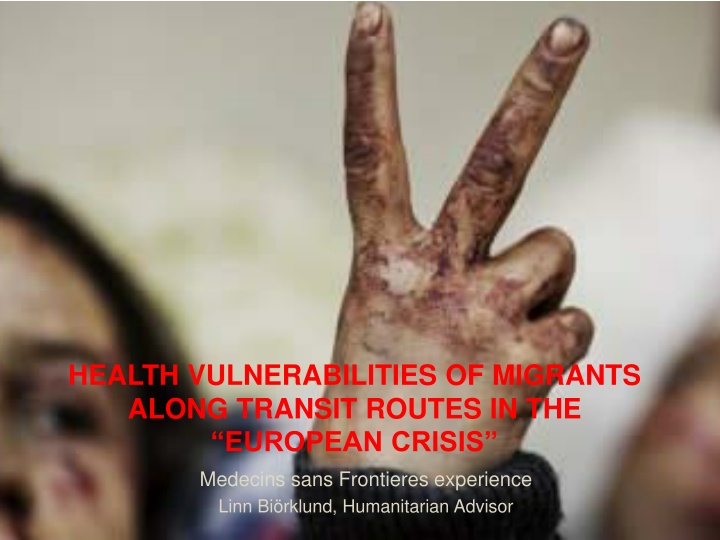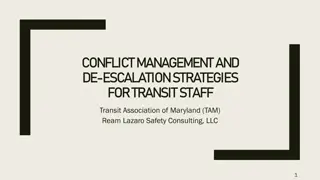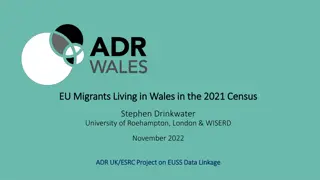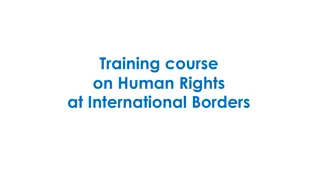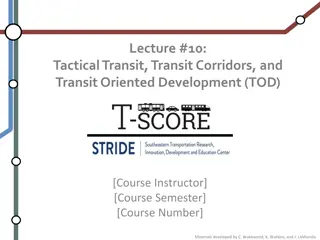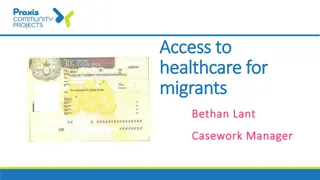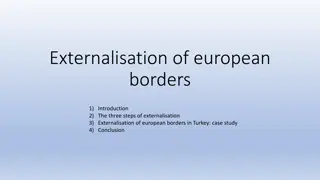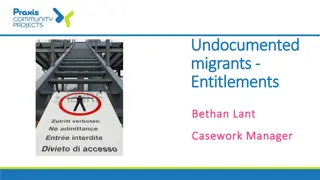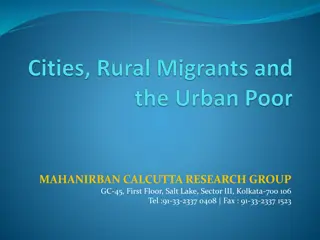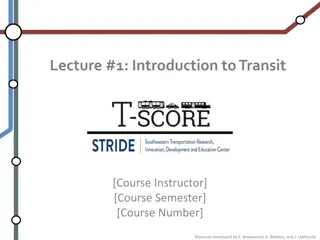Health Vulnerabilities of Migrants Along Transit Routes in the European Crisis
Mdecins Sans Frontires (MSF) provides essential aid to migrants along transit routes in Europe, focusing on the impact of migration and assisting individuals with unmet humanitarian needs. The European migration crisis presents challenges such as lack of access to healthcare, human rights violations, mental health disorders, and labor exploitation. Additionally, the health consequences of war in Syria exacerbate the situation, leading to direct and indirect impacts on individuals' well-being, especially mental health and psychosocial concerns among displaced populations.
Download Presentation

Please find below an Image/Link to download the presentation.
The content on the website is provided AS IS for your information and personal use only. It may not be sold, licensed, or shared on other websites without obtaining consent from the author.If you encounter any issues during the download, it is possible that the publisher has removed the file from their server.
You are allowed to download the files provided on this website for personal or commercial use, subject to the condition that they are used lawfully. All files are the property of their respective owners.
The content on the website is provided AS IS for your information and personal use only. It may not be sold, licensed, or shared on other websites without obtaining consent from the author.
E N D
Presentation Transcript
HEALTH VULNERABILITIES OF MIGRANTS ALONG TRANSIT ROUTES IN THE EUROPEAN CRISIS Medecins sans Frontieres experience Linn Bi rklund, Humanitarian Advisor
Who is Mdecins Sans Frontires (MSF)? Created in 1971 following the Biafran war in Nigeria. Today, a worldwide movement of over 30.000 staff in 70 countries. Long history working with refugees and internally displaced. Working along routes, in transit and host countries. Assist/protect people at all stages of their flight, irrespective of legal status. Focus on the impact of migration. Priority is people with unmet and humanitarian needs.
A few facts on the European migration crisis Hardship linked to mass population movements Fluidity of routes Deterrence policies - humanitarian and medical impact Limitation of legal categories JPEG - 99 ko - next picture Humanitarian aid to 3rd countries does not absolve EU member states of their responsibilities
..and their consequences Lack/discrimination in access to health care Violence and violations of human rights Torture and ill-treatment Interruption of chronic treatment Mental health disorders Correlation between sub-standard living conditions & diseases Labor exploitation and human trafficking
Health Consequences of War in Syria Direct - Weapon wounded, Mental health Indirect - Regression in control of communicable diseases - dysfunctional EPI program (measles, polio, typhoid, hepatitis A outbreaks confirmed or suspected); Kala azar outbreak; exacerbation of symptoms for people living with NCDs; Reduced access to health care - primary & secondary - public & private; Water and sanitation infrastructure.
Mental health and psychosocial concerns of displaced people in and around Syria History of trauma: direct witnessing of violence and indirect exposure to conflict Relocation stress Uncertainty about the future Survivor guilt/ongoing concerns about the safety of family members Grief following loss of family members, friends and colleagues Loss of identity and formation of new identity Increased rates of domestic violence due to psychological strain and lack of coping mechanisms Higher rates of early marriage Manifestation of psychological and social distress 84% of all mental health consultations carried out by MSF in Syria, Turkey, Jordan are directly or indirectly linked the conflict
Immigration Detention - Impact on Health Physical Health Upper respiratory tract infection (24,7%), musculoskeletal condition (13,7%), gastrointestinal disorders(14,7%), skin infections (8,5%), dental problem (7,9%). In total 63% of total diagnoseswere linked directly or indirectly to the substandard detention conditions Mental health 39% of patients presented symptoms of anxiety. 31% of patients presented symptoms of depression. 17.3% of patients sought psychological support due to previous experience of traumatic events - PTSD was diagnosed in 9.5% of all patients. 3.2% of patients attempted suicide or self-harm during.
How to limit health vulnerabilities? Safe and legal channels for people seeking asylum and legal migration pathways; Ambitious search and rescue mechanism to save lives at sea; Reception according to EU standards; Intra-EU relocation schemes; End violence and abuse.
